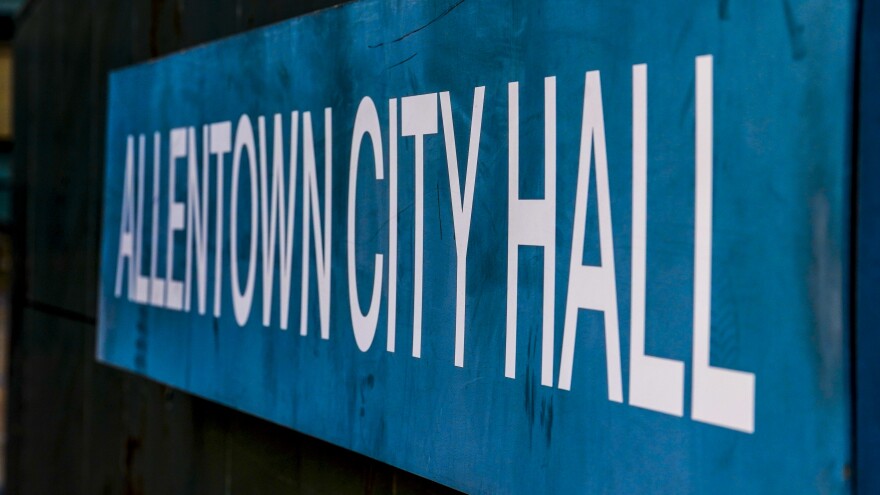ALLENTOWN, Pa. — A group recovery home in Allentown must downsize after the city Zoning Hearing Board rejected its owner’s request to keep operating as is.
Eugene Baker launched a recovery home in 2020 at 28 N. Ellsworth St. without the board's approval.
“We understand that we messed up originally, and that’s why we’re coming back to get the relief required."Attorney Matthew Deschler
Attorney Matthew Deschler asked the board Monday to overlook Baker’s ignorance of local zoning codes and to let him continue operating the recovery home, where five people live.
“We understand that we messed up originally, and that’s why we’re coming back to get the relief required,” Deschler said.
'As the crow flies'
Baker and his real estate company, ECB Property Holdings, asked zoning officials to consider an alternative reading of the city’s zoning ordinance that prohibits a small group home from opening within 1,000 feet of another.
ECB owns five group-living facilities in Allentown, including a “clean and sober” living house at 601 E. Westminster St., less than 800 feet from the North Ellsworth Street property.
Allentown zoning officials approved that group home in February.
The route one would take to walk or drive between the two facilities is more than 1,000 feet, meeting the code’s requirement, Deschler argued.
“I’m having trouble finding a true and unique hardship” — a key component for the board to grant relief.Scot Unger, Zoning Hearing Board
But the ordinance is “very clear” that the distance is to be measured “as the crow flies,” zoning board member Scott Unger said.
The board eventually voted 3-0 to reject Baker’s request for zoning relief.
Unger and board Chairman Robert Knauer both said they supported the proposal but were struggling to find a “legitimate legal basis” to grant relief.
“I’m having trouble finding a true and unique hardship” — a key component for the board to grant relief, Unger said.
Downsizing likely
That ruling means Baker cannot operate the North Ellsworth Street property as a small group home, which can have five or six residents.
But Baker can get around the zoning ruling by reducing tenancy to four residents.
The property would then be classified as a single-family home, which the city code defines as a group of up to “four unrelated persons living together as a single housekeeping unit.”
Baker would need no zoning relief to operate the property as a single-family home.
Baker said his group homes — managed by Westminster Homes of the Lehigh Valley — are “a step down” from a rehab facility, with residents receiving outpatient services to continue their recovery from drug and alcohol addiction.
Residents at each facility are required to complete a host of chores and attend multiple meetings a week to discuss their recovery, he said.
Allentown zoning officials urged city staff to “be thoughtful” in how they enforce that reduction so it doesn’t interfere with any tenant’s “recovery cycle.”


